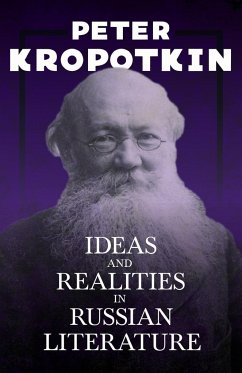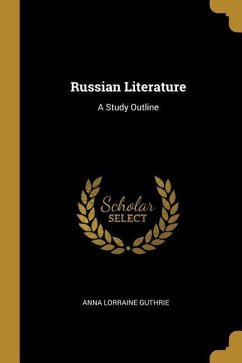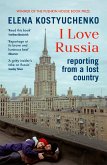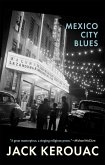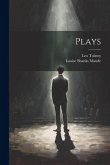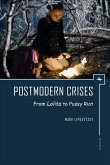¿Ideas and Realities in Russian Literature¿ is a 1906 work by Russian historian and anarchist philosopher Peter Kropotkin. Within it, Kropotkin presents a broad, general idea of the subject by examining modern literature and its most notable contributors. This volume will appeal to those with an interest in Russian literature and is not to be missed by collectors of Kropotkin's seminal work. Pyotr Alexeyevich Kropotkin (1842¿1921) was a Russian writer, activist, revolutionary, economist, scientist, sociologist, essayist, historian, researcher, political scientist, geographer, geographer, biologist, philosopher and advocate of anarcho-communism. He was a prolific writer, producing a large number of pamphlets and articles, the most notable being ¿The Conquest of Bread and Fields, Factories and Workshops¿ and ¿Mutual Aid: A Factor of Evolution¿. This classic work is being republished now in a new edition complete with an excerpt from ¿Comrade Kropotkin¿ by Victor Robinson.
Bitte wählen Sie Ihr Anliegen aus.
Rechnungen
Retourenschein anfordern
Bestellstatus
Storno

